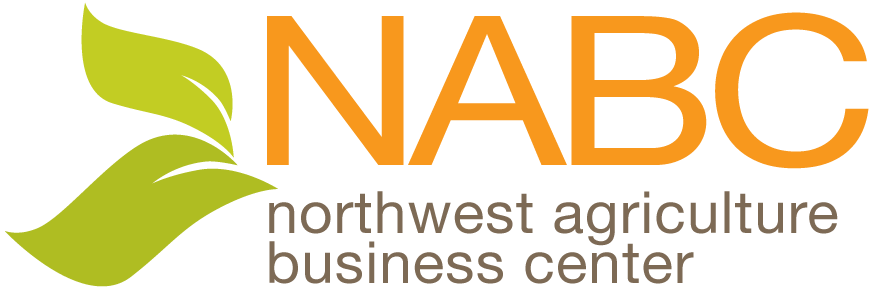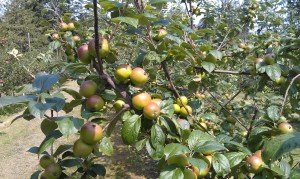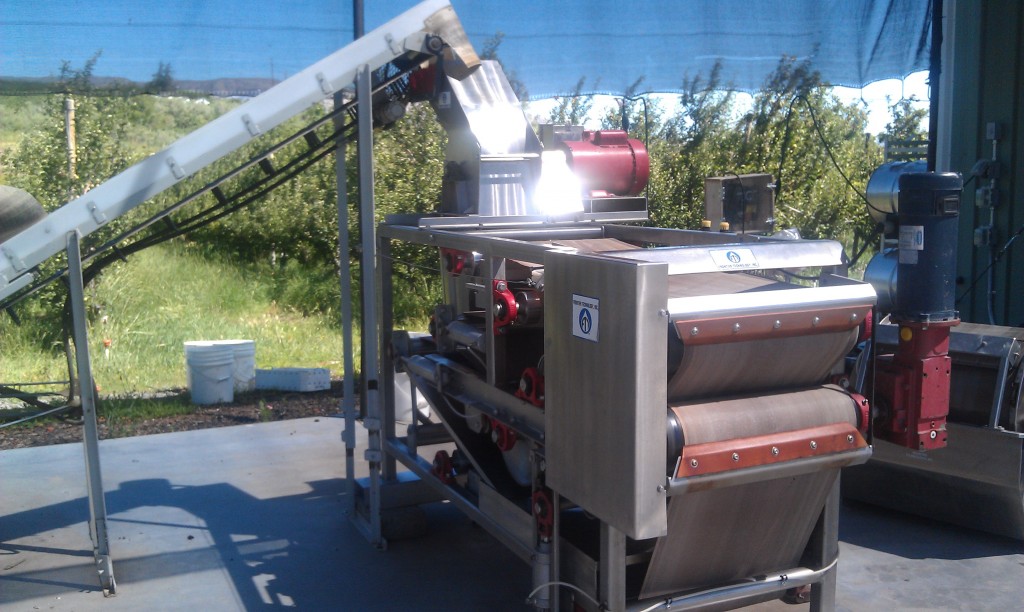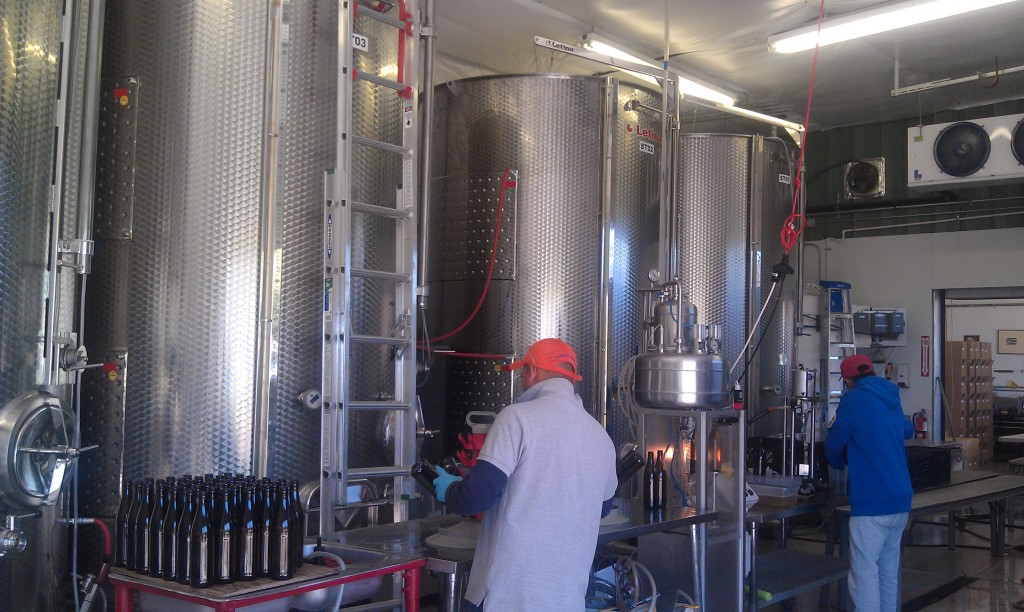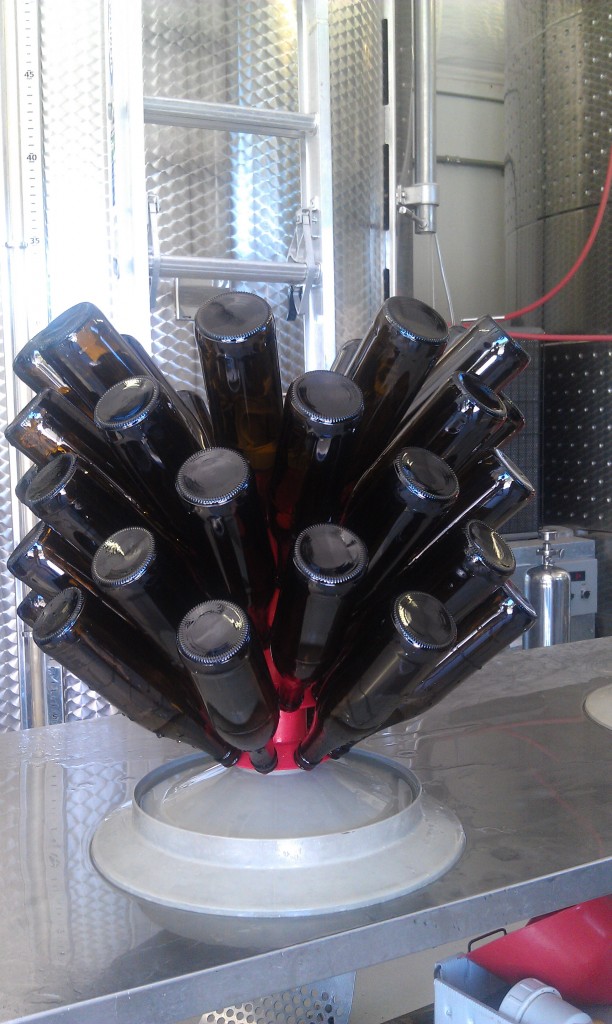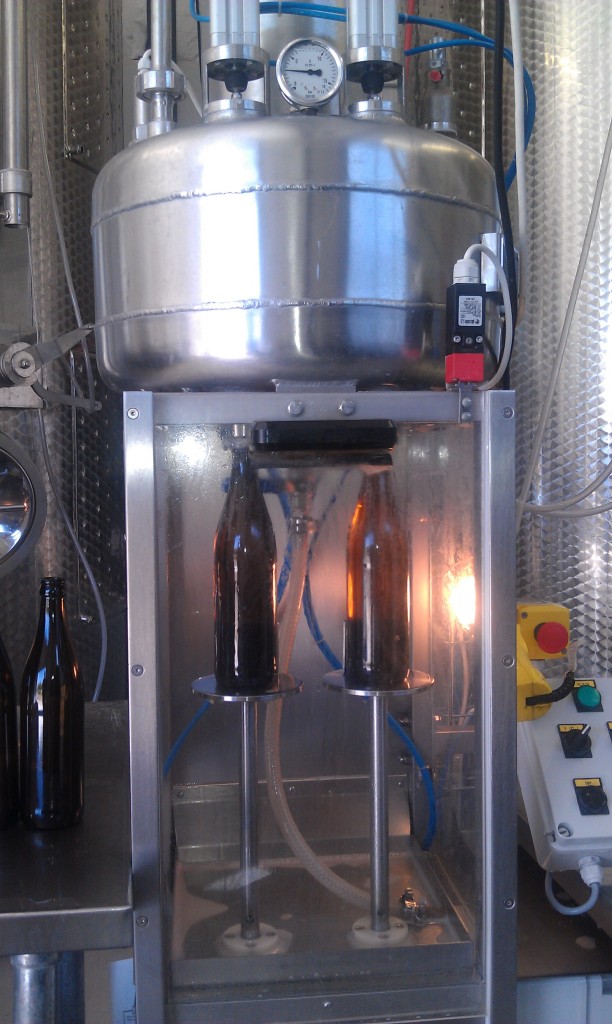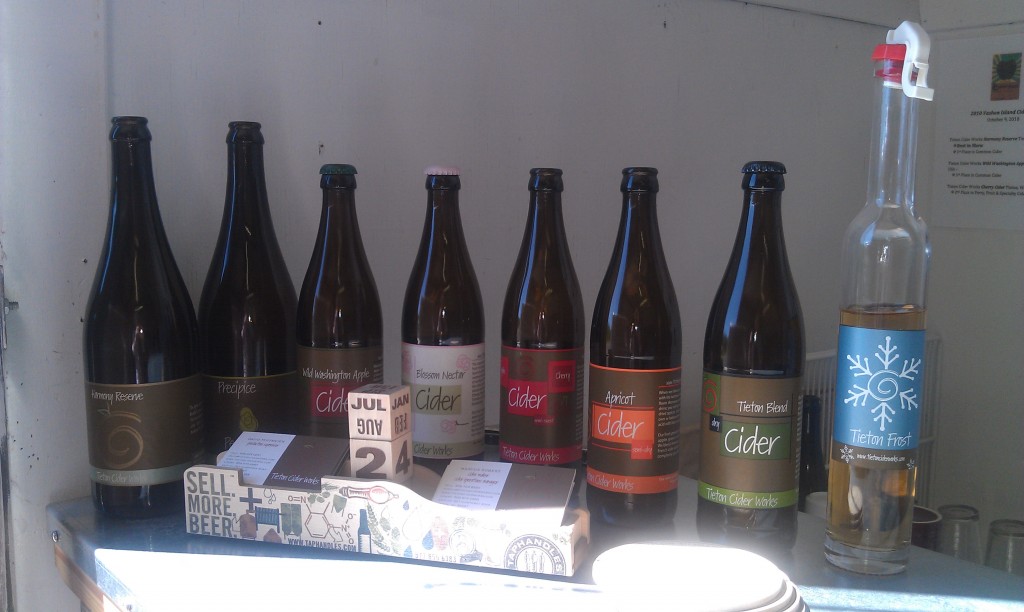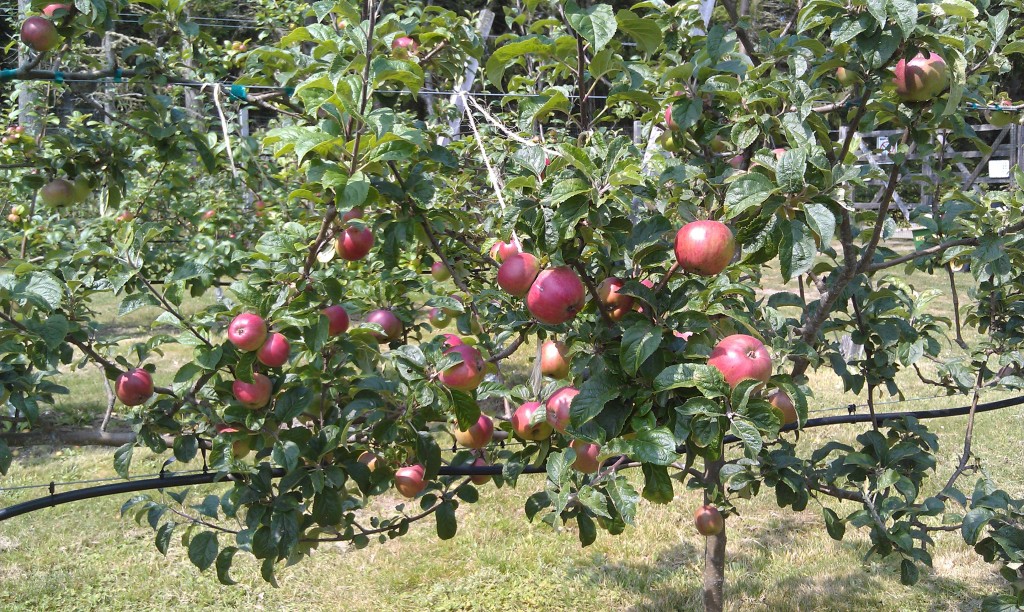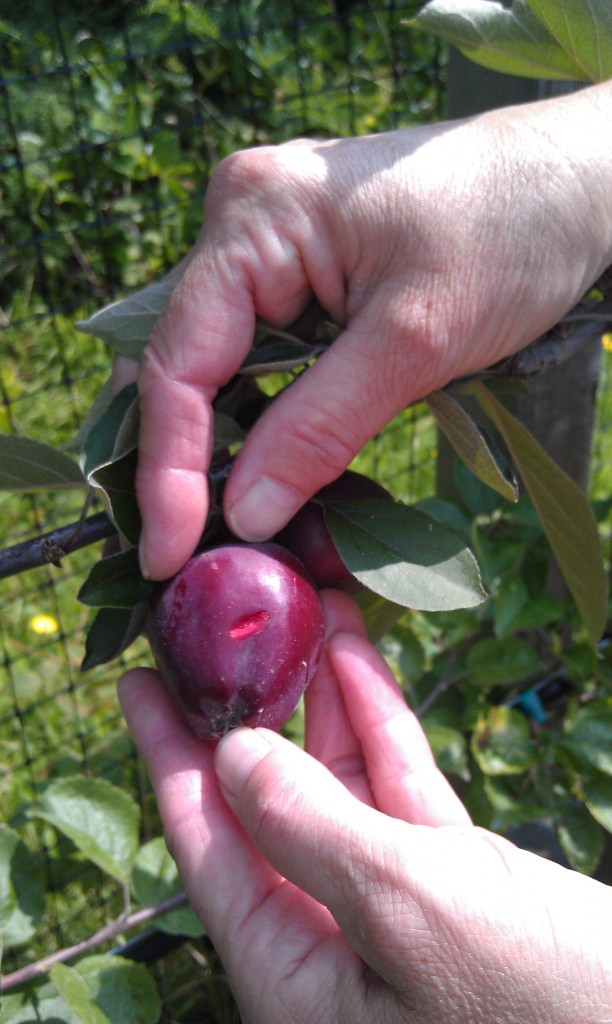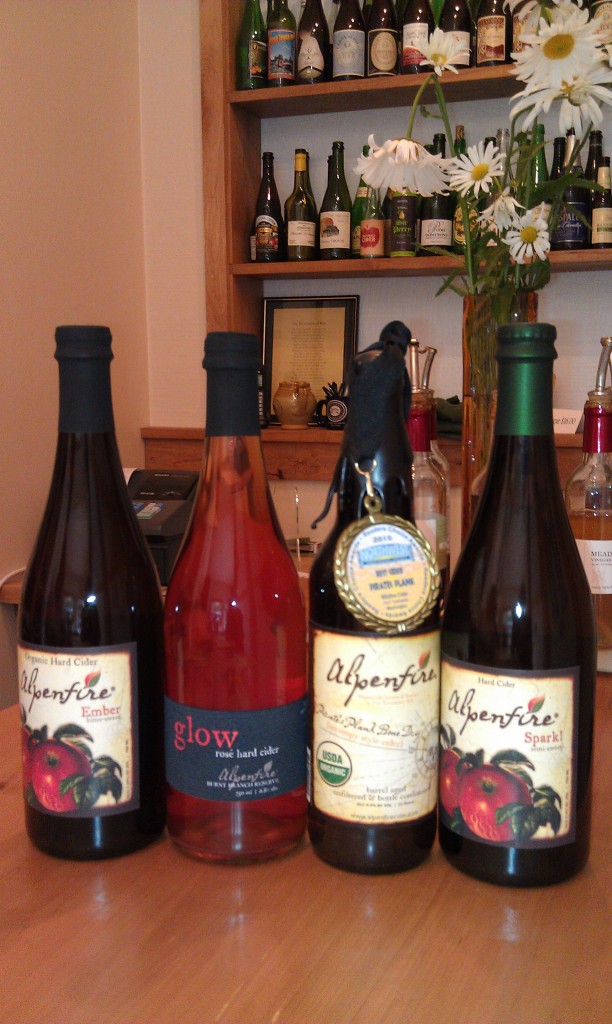NABC Visits Tieton Cider Works and Alpenfire Cider
Craft cider making is on the rise in the Northwest. To learn more about successful production and marketing of these trendy products, NABC’s Karen Mauden hit the road this past month to visit artisan cider makers near and far.
Tieton Cider Works
Tieton Cider Works is part of the Campbell family’s original homestead from 1930. The 380 acres of property are located at 2000 foot elevation (on a beautiful plateau about 800 feet higher than most of the Yakima Valley). Here the wind blows and the soil is rocky. Because of the climate & land conditions, the land was originally used for raising cattle until the late 1950’s & early 1960’s. Through the creation of windbreaks, irrigation and methods of providing soil nutrients, the cattle operation was converted to orchards. The ground now is home for 20 acres of apple trees.
Tieton Cider Works has been making hard cider since 2008 and grows all the apples that are used in their hard ciders. “From dirt to bottle” TCW is a vertically integrated company.
They use primarily bittersweet & heirloom apples to create unique blends of cider. These apples are known for their tannins, aroma, body and character – characteristics which are quite different from apples grown for apple juice or eating.
As an early adopter of the craft of hard cider making (which in 2012 is much like the craft beer industry in the early 1980s) they are helping break ground for this new, value-added farm industry. In 2009 TCW produced 200 cases of Hard Cider; in 2012 they will produce 20,000 cases – and demand continues to grow. They also produce 80,000 gallons of draft hard cider! Try a “pull of cider” at your local pub.
Did I forget to mention they also grow Perry Pears? These special varieties of perry pears are perfect for cider making. Their characteristics give a wonderful balance, aroma and flavor to a blended pear cider.
The Production Process
In fewer than 3 days the apples are washed, cleaned and pressed. The pressed juice is then fermented in stainless steel 2,200 gallon tanks. After 3-6 weeks fermentation, the juice is pumped into 275 gallon bag-in-boxes and sent to controlled temperature storage for aging. Three months to one year later, and after undergoing a slow pasteurization process, it is hard cider ready for bottling!
Tieton Cider Works bottles 6,000 gallons of hard cider a month (and they’re in production fewer than three days a month!). TCW will bottle 125 cases per day (12 bottles/case), and palletize and ready the final product to ship.
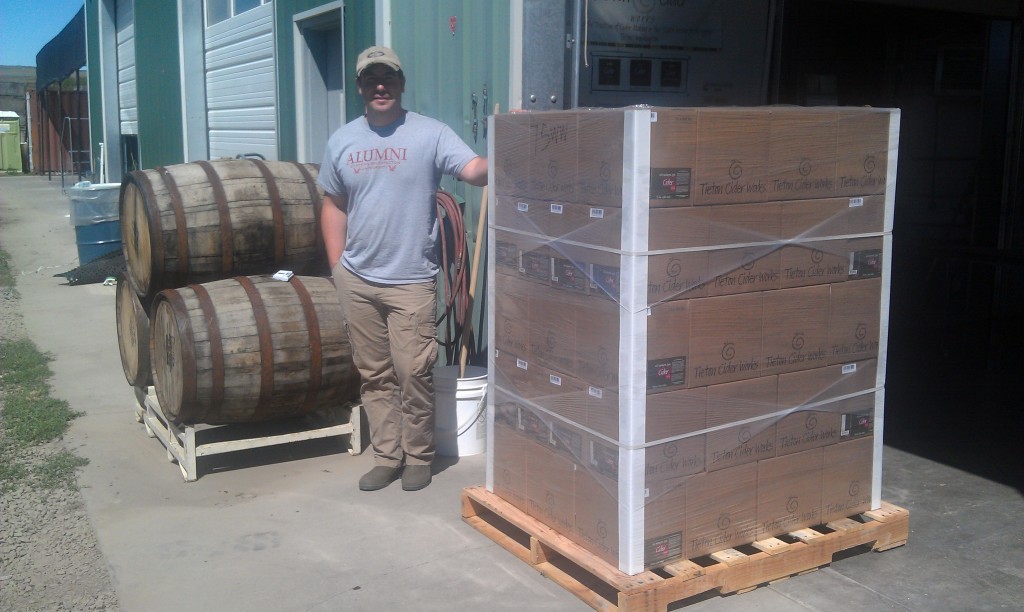
When you purchase TCW hard cider at your local retailer you will find it located in the chilled section next to craft beers. Although it does not require refrigeration, those most apt to try hard ciders are the craft beer drinkers. It’s all about location, location, location in the store. Place your product where your customer shops.
But unlike those craft beers, we wonder, do hard ciders get better over time – more like a fine wine or scotch? Marcus Robert, General Manager & Head Cider Maker at TCW says, ‘Yes. A little know fact is that they improve with age.” So maybe you can buy an extra bottle or two and test them out at 1 and 2 years in the future – a fun treat for your patience. Meanwhile, just enjoy the bounty of the harvest and these craft cider makers’ efforts.
Alpenfire Cider
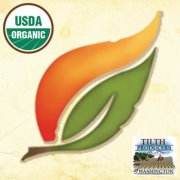 Nancy and Steve ‘Bear’ Bishop produce the only certified organic cider in the western US. The Bishops’ trellised, 950-tree organic orchard is surrounded by high fencing to keep the deer and other woodland critters from enjoying the fruits of their labor.
Nancy and Steve ‘Bear’ Bishop produce the only certified organic cider in the western US. The Bishops’ trellised, 950-tree organic orchard is surrounded by high fencing to keep the deer and other woodland critters from enjoying the fruits of their labor.
As we walked the orchard rows, Nancy pointed out how abundant the trees are with fruit. Although this soil is not as fertile as found in the Skagit Valley, the Bittersweet, Bittersharp and Heirloom apple varieties they grow do very well in the bare bones soil of Pt. Townsend. These are imported varieties from England and Normandy, areas which host similar soils able to produce trees with great yields and cider apples with great flavor, as proven through time.
Nancy pointed out a wonderful apple called Almata. She cut the skin with her fingertip and revealed a unique red flesh. “This apple is blended with others to create our newest cider, a rosé named Glow. Red fleshed apples are rare and it’s hard to come by enough quantity to make cider. As far as we know there is only one other rosé cider in the US. Bravo, Alpenfire!
Oak barrels are used for aging ‘Pirates Plank’, an award-winning cider by Alpenfire. Pirates Plank uses early season apples, which create an English-style dry cider.
‘Ember’ is Alpenfire’s late season cider. It has a sweeter finish with more complexity, more reminiscent of a French-style cider. It’s all about the apples. Apples that harvest later will develop more complexity and reflect the increased tannins as they stay on the tree longer.
Thanks for sharing your expertise, Alpenfire. To learn more and find where you can purchase Alpenfire hard ciders, visit their website: www.alpenfirecider.com
You can find and follow both Tieton Cider Works and Alpenfire Cider on Facebook.
